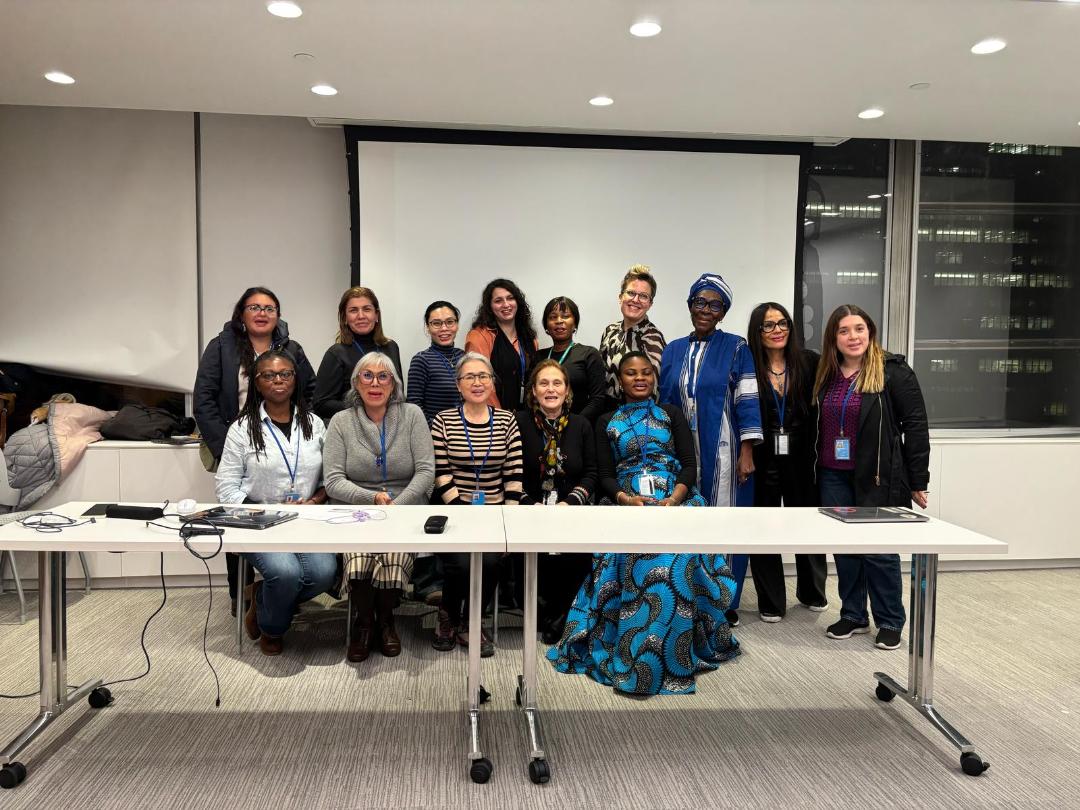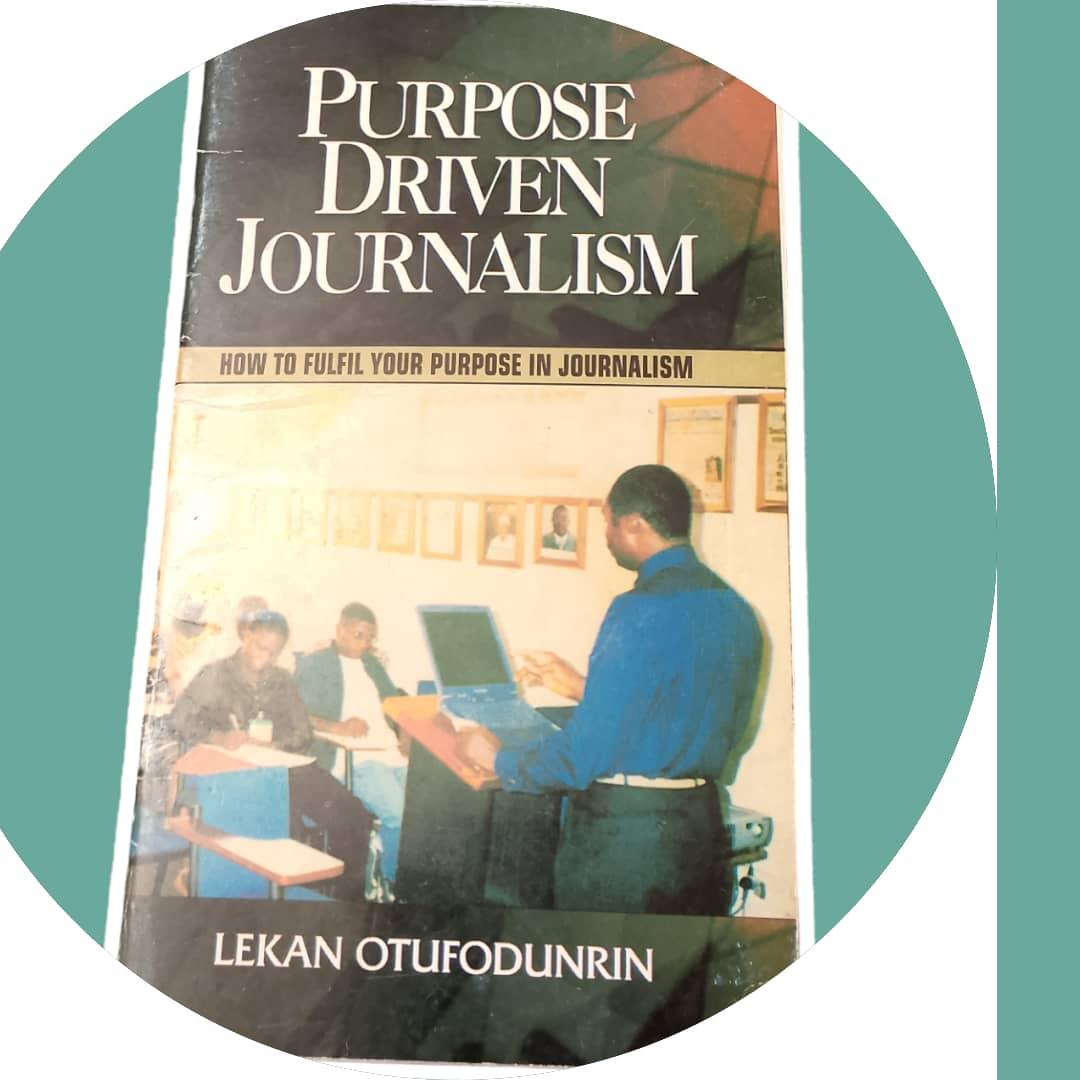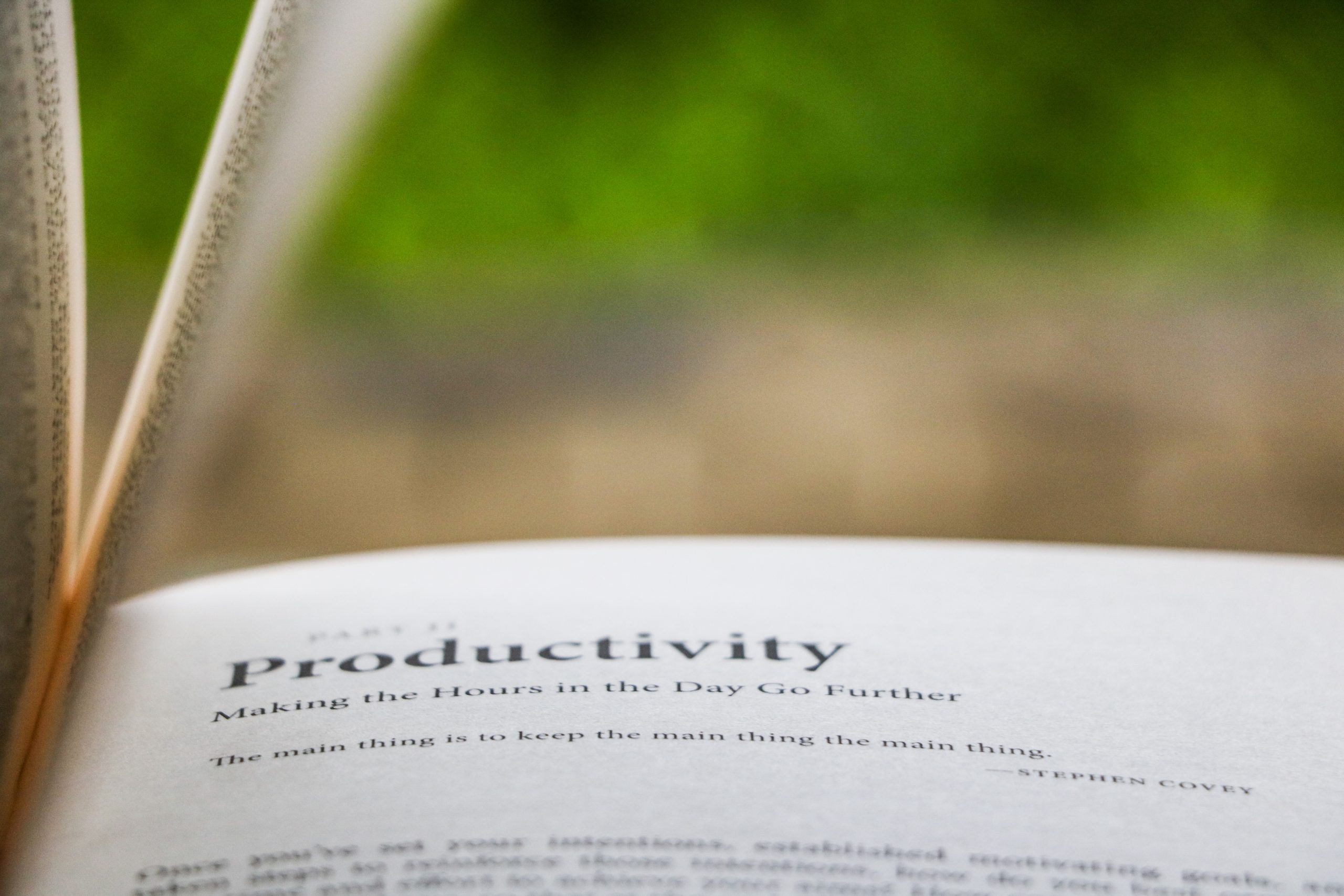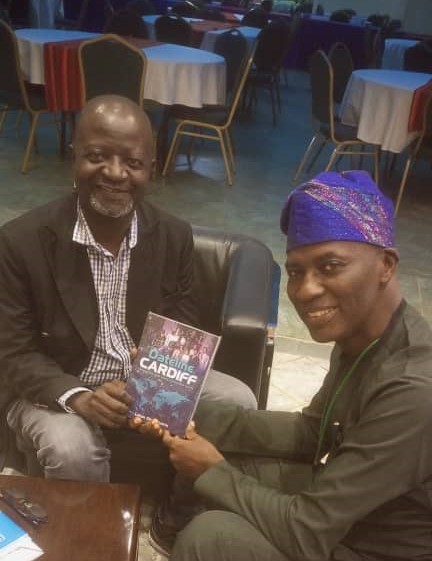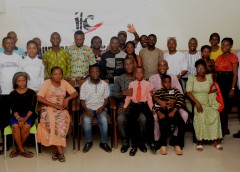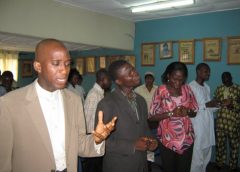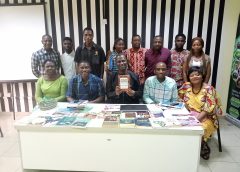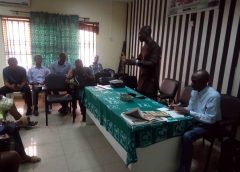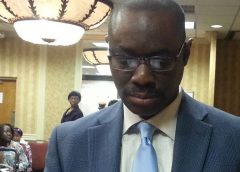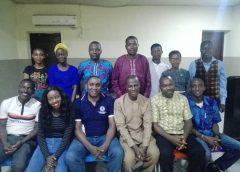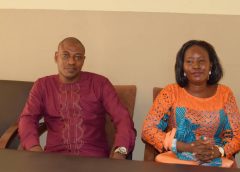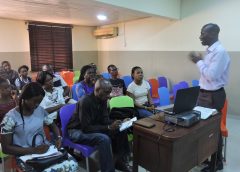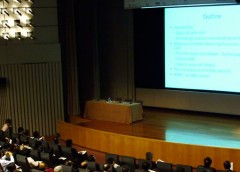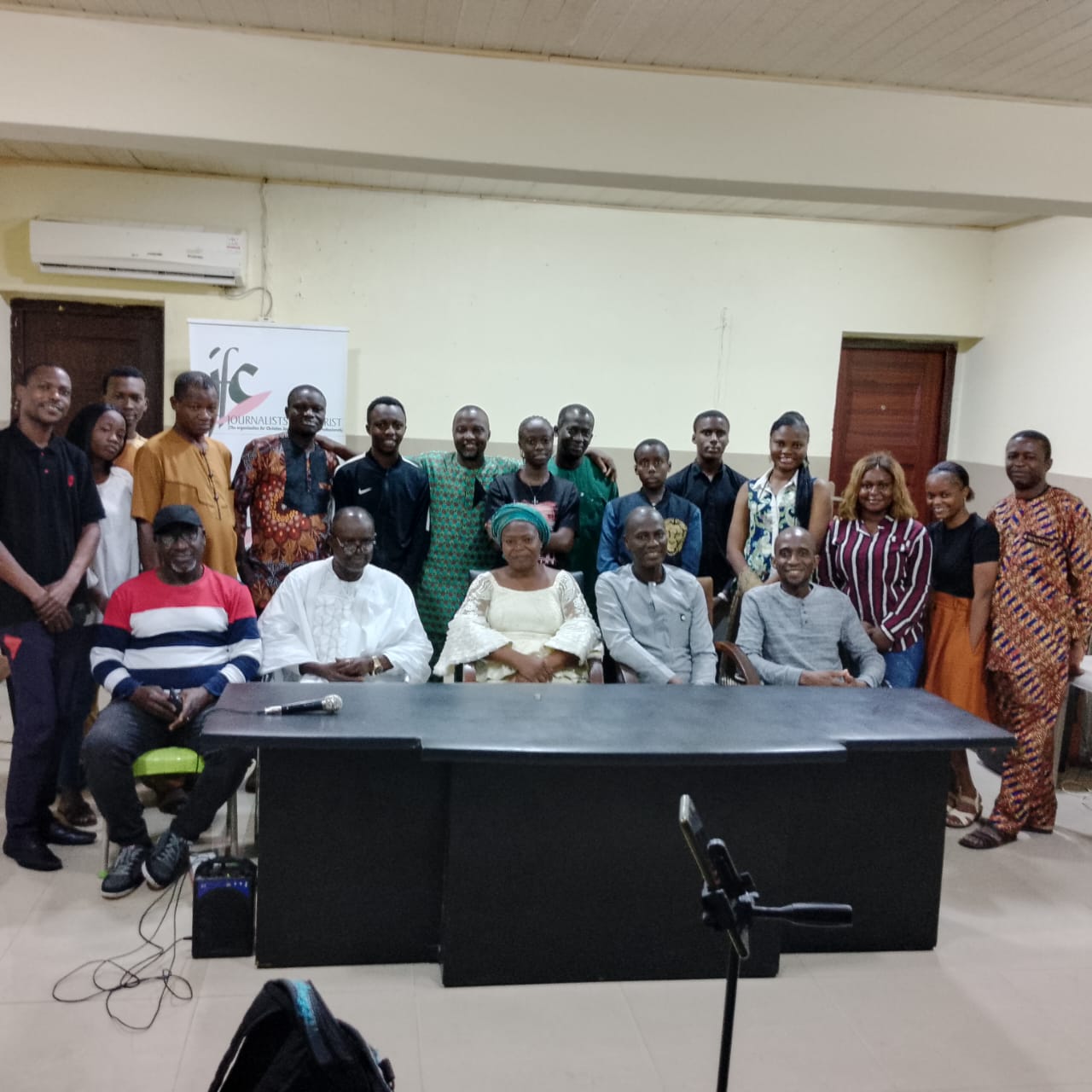
Former Editor and Chairman, Editorial Board, The Punch, Pastor Bola Bolawole, captivated the audience during a compelling lecture on the art of maximising times and seasons. Addressing a gathering organised by the Journalists for Christ Fellowship at the International Press Centre in Lagos on July 22, 2023, Pastor Bolawole offered spiritual and professional insights on seizing opportunities and navigating life’s unpredictable ebbs and flows.
Pastor Bolawole emphasised the significance of extracting the utmost advantage from moments and circumstances. Drawing from both philosophical insights and biblical teachings, he intricately wove together practical wisdom with timeless truths, leaving the audience inspired to embrace change, overcome challenges, and harness the power of maximising times and seasons to achieve success.
READ FULL SPEECH HERE…
My gratitude to my brother, Lekan Otufodunrin, and the other leaders and members of the Journalists for Christ Fellowship for this invitation; and for the great inspiration you received and the assiduous work you have done to nurture this vision to its present great and laudable heights. From a distance, I have watched you toil day and night, in fair as well as in inclement weather, unwavering in the face of the daunting challenges you must have faced and never minding whatever disappointments that might have come your way. You have been steadfast and God has been your pillar of support. He has been your refuge and strength, a very present help in trouble (Psalm 68:6). For no one who receives and runs with a vision (Habakkuk 2:2) and has a good report to present has ever done so without encountering and surmounting difficulties, challenges and troubles. That you have come this far can only mean you have maximised times and seasons! So, all I need to do to discharge the onerous duty placed on my shoulders is to simply beckon on Lekan and his team to come forward and tell us how they have come this far! By the time they finish, we all must have learnt useful lessons on how to maximise times and seasons!
As social scientists, let us start by defining our terms: To maximise means to take the best possible advantage of; to enlarge or stretch to its elasticity level. The opposite of “maximise” is “minimise”. If a student had the capacity or capabilities to make a First Class degree but ended up making a Second Class Upper degree, we will say he did not maximise his capabilities even though Second Class Upper is still a very good grade. In a business if you make less profit than the opportunities available or if, in a position in government a leader performs below par despite the avalanche of resources at his disposal, it can be said that such a fellow did not maximise but has minimised his opportunities and time in office. An average performance, where the capacity to do more is available, does not maximise but minimises. Remember the book “An enemy called average” by John Mason. It is only when we maximise that we are at our best; it is only then that we give our best to society. Destinies are best fulfilled when opportunities that come our way are maximised.
“Times and seasons” can be defined as moments and seconds that become minutes, hours, days, weeks, months, years, decades, and millennial, etc. Embedded in “times and seasons” is the understanding that it is fleeting, however long and inexhaustible it may seem in the beginning, and that it waits for no one. Hence the saying: Time and tide wait for no man. Seasons, like tides, signify unpredictability, ups and downs and the absence of uniformity. In fact, what is predictable in seasons is its unpredictability! Hence the saying: No condition is permanent! In the Marxian dialectical materialist interpretation of history, the triad of thesis, antithesis and synthesis move inexorably: The thesis is the proposition; the antithesis, which is a reaction to the proposition, negates the thesis to form the synthesis, which is the resolution of the conflict between the thesis and antithesis by reconciling their common truths and forming a new proposition. It does not end there as the new proposition becomes a new thesis which is immediately negated by antithesis and the process goes on and on! What is constant in life, therefore, is motion; a state of constant flux.
Times and seasons are sometimes good or favourable and, at others, bad and unfavourable; the Book of Job teaches that we cannot expect or accept what is “good” from God and not expect to receive the very opposite once in a while. Philosophers such as Aristotle and Cicero came up with the concept of “summum bonum” which, to the former, is an ultimate end or goal (the full enjoyment of life in joy and happiness) at which all human action is directed and to the former, the highest or ultimate good towards which humans gravitate or should gravitate. The opposite of this, however, is what another philosopher, Thomas Hobbes, called “summum malum” or greatest evil, which is the fear of violent death. As journalists, we must all be very familiar with Hobbes famous quotes of a “state of nature” in his book, Leviathan, which he described as “a war of all against all, and the life of man solitary, poor, nasty, brutish and short” Hobbes countered Aristotle and Cicero when he posited that there is no “summum bonum” or ultimate good but only ultimate evil. He says: “We desire not to die. While there is no “summum bonum” or greatest good, there is a “summum malum” or greatest evil, which is death. We passionately wish to avoid death”. This is the theory that Hobbes used to justify State power and the restriction of human freedom for the benefit of all; otherwise, if everyone were allowed to exercise their liberty without restraint, society would be ungovernable and no one would, in the end, be safe.
Now to scriptures since this is a gathering, I believe, of the children of God; Christians in the main judging by the name and activities of the organisation hosting this lecture. Scriptures have so much to teach us about times and seasons and how to maximise them. Unfortunately, many of us use the Bible only to bind and loose, to cast out and command to come; good and profitable as these may be, a greater benefit, in my view, is derivable from the application of Bible wisdom and teachings to everyday living or our times and seasons, as it were. We have a rich repertoire of harvests in the word of God concerning times and seasons and how to maximise them. To start with, the Preacher tells us in Ecclesiastes 3: 1 – 8 that “To everything there is a season and a time to every purpose under heaven…” Some have posited that this is the philosophy of Determinism and have queried what room, if any, is left for freewill. My answer is that within the limits or borders set, there remains still a lot of legroom to manoeuvre for anyone diligent enough to maximise times and seasons!
Strike the iron when it is hot! Opportunity comes but once! Opportunity once lost can never be regained! “I shall pass this way/I shall pass through this world but once” is a quote that has been credited to multiple authors but the central theme or message remains the same: “Any good that I can do or any kindness that I can show, let me do it now… for I will NEVER pass this way again! That is the limit of the knowledge available to mankind for now. We do not know what tomorrow offers! Therefore, procrastination is the thief of time. We cannot maximise times and seasons if we are like the sluggard in Proverbs 2: 33: “Yet a little sleep, a little slumber, a little folding of the hands to sleep. So shall your poverty come as one that travaileth, and thy want as an armed man” We must also apply two other wisdoms of the Preacher if we must maximise times and seasons: “Cast thy bread upon the waters: for thou shalt find it after many days. Give a portion to seven, and also to eight; for thou knowest not what evil shall be upon the earth” (Ecclesiastes 11: 1-6) and “In the morning sow thy seed, and in the evening withhold not thine hand: for thou knowest not whether shall prosper, either this or that, or whether they both shall be like good” (Ecclesiastes 11:6). We are all familiar with the parable of the sower as told by Jesus Christ Himself. (Matthew 13; 18-23).
Knowing times and seasons is one of the greatest challenges confronting man from time immemorial! Jesus Christ says the end time that we predict on a daily basis is only known to God. Were we to follow such predictions hook-line-and-sinker, we will do nothing but simply fold our hands, hide in one corner and expect the end at the next moment. The Preacher says therein nothing new under the earth. There is nothing that is happening today that never happened before. And there is no prediction or prophecy of God, if we truly believe He is God; that will not come to pass. So, why pay against the coming of 666? When Peter ignorantly tried to prevent the prophecy of Christ dying for mankind from coming to pass, what did Jesus tell him: “Get thee behind me, Satan”!We predict but come to grief because we lack an understanding of the times and seasons for their manifestation. We rush to press with prophecies, dreams and visions before we have adequately pigeon-holed them in their exact times and seasons and end up being called prophets of doom or fake prophets. Maybe truly you were Number 16 but you became Number Nothing because, failing to ask for times and seasons for the manifestation of that which you received and how it shall be fulfilled, you ran before your time and another took your place. This is where Daniel and the Virgin Mary differed from us. When Daniel received the revelations that shook him to his very roots, he asked for the times and seasons of their manifestation; and when Mary received the unthinkable message from Angel Michael, she asked “How can this thing be?” When and how are very important for anyone who will maximise times and seasons.
Now, let’s go practical; we are passing through interesting times in our country as we speak, to quote the iconoclastic Dr. Tai Solarin, but can we “pray” like he did, for our road to be rough? Can our road be rougher than it is today? Yes, it can! Each time we think we have had the worst, worse things happen! May we not know better yesterday is a prayer God is yet to answer for this country! But may we as individuals not know better yesterday! Remember, keeping hope alive is one of the surest ways of maximising times and seasons. The Bible says we shall soon reap if we faint not – but that is if you sowed and depending also on what you sowed. Majek Fashek, the “rain doctor”, tells us that no one plants cassava and reaps cocoyam. Scripture says whatsoever a man soweth, that he shall reap also (Galatians 6:7). It has been said that a lecture that answers all the questions is poor; conversely, a good lecture is one that raises more questions than it answers so that it can provoke a robust discussion and rubbing of minds. Has the Chinese revolutionary, Chairman Mao Zedong, not said “Let a hundred flowers bloom; let a hundred schools of thought contend”?
I will now give some biblical examples of how our forefathers maximised times and seasons.
1. When there was famine in the land, just like we have in our land today, Isaac wanted to run away just like his father, Abraham before him had done but God counselled him not to. Bible records that Isaac sowed in the land and reaped multiple folds and became richer than his wealthy father. We were not told he only prayed and fasted and did vigil. He might have done all of that but he still sowed in the land. He worked hard. He did not allow the opposition of enemies to overwhelm him when they repeatedly frustrated his efforts to dig wells and strike water. Faith without work is dead. Hard times have two faces: Hardship and opportunities; it depends on which one we choose to see.
2. When Pharaoh had the dream that unsettled him, the solution that Joseph proffered was “save for the rainy day” That was what saved the entire world as it was then known from death by starvation. Tell me, what happened to Nigeria’s Sovereign Wealth Fund? Assuming we made saving a habit, we will not be where we are today. As individuals, we must take a cue from this if we must maximise times and seasons.
3. When there was famine in the land, Naomi and her household did the opposite of what Isaac did: they “japa” to the land of the Moabites but what happened to them there? Naomi lost her husband and two sons and returned home empty. By the time she did, the problem she ran away from had dissipated! But for Ruth that came back home with her, she would actually have transformed from Naomi (Pleasant) into Mara (Bitterness).
4. In the siege over Samaria, four lepers took the risk to go into the enemy camp; without that, they would have died and, possibly, the entire city would have perished from a danger that no longer existed but which they knew nothing about, until God used the lepers to open their eyes. Taking calculated risks, like the lepers did, is one of the ways to maximise times and seasons.
5. The bible stories of the widow of Zarephath, the Shunamite woman and Tabitha (Dorcas) tell of the heart that gives sacrificially; so also the widow who cast her mites into the offering bag. Giving opens doors. Closed destinies get an expression when the heart is primed to give sacrificially. Ten lepers were cleansed but only one returned to show appreciation; as a result, his miracle was made more perfect than that of the other ingrates. Two words that many people find very difficult to say are “Sorry” and “Thank you”!
6. “Nothing goes for nothing”; they say! What do you have, Elisha asked the widow of one of the sons of the prophets. Jesus Christ, to feed the thousands, blessed the few loaves of bread and pieces of fish that the lad had with him. Many Christians today have nothing in their hand; yet, they desire blessings and miracles, praying day and night and shouting “amen, I receive” all over the place. What they want is magic.
7. Blind Bartimaeus refused to be cowered; the more they tried to shut him up, the louder he cried. A closed mouth, they say, is a closed or shut destiny. He was also specific about his vision and mission: That I may receive my sight. Many have no clear idea of their purpose in life. How can such maximise times and seasons?
11. Jephthah, like David, was a reject but each developed their God-given gifts and talents. If you have what the world needs, they will look for you. Be a solution provider. Never go to people and say, “Please, help me”. Rather, say to them, “I can help you. I have something you need!” A man’s gifts maketh a way for him. And be diligent in whatever you do. Add value! “Seeth thou a man diligent in his business…” (Proverbs 22:29).
12. When the tax collectors came to Jesus and his disciples and asked for tax, what did that suggest? They should have savings! Judas kept the purse; what did he do with it? Anyone who does not have a healthy savings habit is not likely to maximise times and seasons but will most likely suffer embarrassments and ridicule now and again.
13. As much as it lies within your power, stay healthy. “Mens sana in corpore sano: A sound mind in a sound body”.
14. This is the digital age; the age of high-tech. Technology must not pass you by. If it does, you become irrelevant and cannot in any way maximise times and seasons.
Finally, “Wherefore take unto you the whole armour of God, that ye may be able to withstand on the evil day, and having done all, to stand” (Ephesians 6:13-20). Let the discussion begin in earnest!
I THANK YOU!
